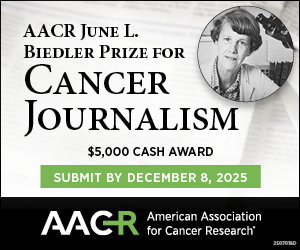By Siri Carpenter and Tammy Powledge
Where can I find story ideas?
Read.
Read the publications you would like to write for to get a sense of the types of stories that appeal to them and what departments suit your topics. An astonishing number of writers neglect this most basic research effort. Yet understanding what a publication wants is the first step to a successful pitch.
Then pick a few topics that you find particularly fascinating and would like to write about, and read about them deeply. Who are the leading figures in the field, and who are the rising stars? What are the controversies about? What theories are being debated? How are new methods shaping the research? Does the research pose ethical or policy questions?
Conferences are usually free to journalists; go to as many on your topics as you can. Listen to the papers and talk to scientists at coffee breaks, which will help you set the findings in context. An increasing number of conferences are Webcast and archived. You'll miss the coffee break chat, but on the other hand, you can "attend" in your jammies.
Yes, this is a long-term project and usually will not generate a saleable idea by tomorrow morning. But as you continue reading and listening, and your expertise increases, ideas will pop into your head unbidden. Honest.
What do editors look for in a story?
This depends a great deal on the publication, as well as the tastes of the editor. In general, editors look for articles that present fresh news or a novel and engaging perspective. Editors look for a compelling and accurate portrayal of the scientific problem, discovery, or debate at hand. They look for writing that is crisp and clear (and free of tired cliches). And they look for stories to be completed on deadline.
How much research do I need to do for a query letter?
You should do enough research to get a clear sense of the scope of the story you're proposing and what is new and interesting about the topic — but not enough to write the complete story. You should be confident enough about the subject matter to sketch out for an editor the basic structure of the story in a few paragraphs. Depending on the complexity of the story you're proposing and your familiarity with the subject, this may mean making a quick phone call to a trusted source or scanning a recent journal article; or it may mean doing more extensive reading and preliminary interviewing for additional background. (See the section on query letters for more information.)
How much should I charge for my work?
This is probably the most common question posted on the NASW freelance listserv. The answer is: It depends. To some extent it depends on whether you are a novice or an old pro. But it mostly depends on the type of work. News story or other journalism? Brochure? Report? Ghost-writing? Grant proposals? Editing? They command different rates, which can range widely with the depth of the client's pockets. Often you may not get to vote; much journalism, for example, offers specific rates for particular kinds of stories and little, if any, wiggle room.
So do what scores of other science writers have done: Consult your peers. If you're contemplating a new sort of assignment, and you haven't a clue what to charge, post a question about rates on the NASW freelance listserv and find out from people who know.
Can I send stories on spec, or just proposals?
It's best to stick with proposals. For one thing, space constraints dictate that only a small percentage of articles proposed to any given publication will be accepted, even if all are worthy. You'll likely be disappointed if you put in a lot of time writing a story, only to have an editor reject it. In addition, many editors view articles sent on spec as an indication of inexperience — rather than working to your benefit, sending completed articles may work against you. In addition, if you spend a great deal of time working with sources to craft your story and then it doesn't appear in print, your sources may be peeved and unenthusiastic about working with you — or other members of the media — again.
Can I send the same query to two editors?
Yes. Typically, writers will give one editor sufficient opportunity to consider their pitch — a couple of weeks or so — before moving on to another editor. If the story is time-sensitive (for example, if it concerns a study that is about to be published in a weekly science journal), it makes sense to solicit a response as quickly as possible. Sometimes writers shop articles around to multiple publications simultaneously, knowing that it's unlikely that more than one editor will be interested in the story, although this can lead to awkward situations from time to time.
How should I keep track of my time when I'm working on a per-hour basis?
I have used a Windows shareware program called TraxTime for years. It's simple, basic, and fairly flexible, allowing you to punch in and out several times in the course of a day. It also generates reports. It costs $29.50 and includes a free trial. See www.spudcity.com.
But you can look for other programs in a number of places. I like PC World magazine (www.pcworld.com) and CNET (www.cnet.com). In both cases, click on the Download tab, which will take you to a catalog organized by subject. Lots of business-related programs here can handle time-tracking, billing and other such topics. Most are inexpensive and offer free trials; some cost nothing at all, although there are fewer of those than there used to be, alas.
Can I resell my story?
It depends on the contract that you've negotiated with the publication. In general, if you have retained copyright of your writing, it's legitimate to resell a story to noncompeting publications — for example, to non-national newspapers in two separate states. Often, freelancers revise their stories for a second market, emphasizing different points, including different quotations, and the like.
Siri Carpenter is a freelance science writer and editor specializing in behavioral science. She lives in Madison, Wisconsin.
Tammy Powledge has freelanced full time since 1990, has written a regular column on freelancing for ScienceWriters since 1997, and is serving her second term on the NASW Board.


